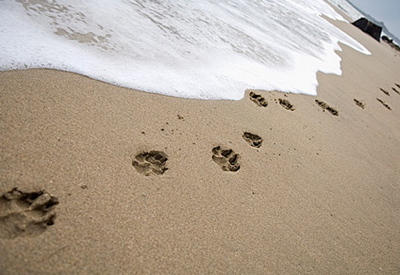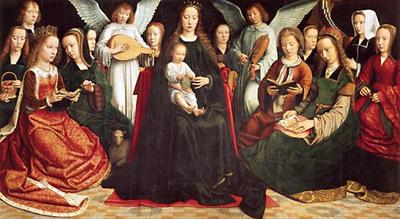Buried inside his characteristically insightful piece about the man who will soon be leading Los Angeles, NCR’s John Allen offers this nugget:
As things stand today, there are seven archdioceses in America where the archbishop is almost certain to become a cardinal: New York, Philadelphia, Washington, Boston, Chicago, Los Angeles, and now Houston. By this stage, Benedict XVI has appointed new leaders in three of those spots: Archbishop Donald Wuerl in Washington; Archbishop Timothy Dolan in New York; and Gomez in Los Angeles.
Three cases does not necessarily a pattern make, but give the importance of those appointments, it’s a safe bet they were carefully considered both by the papal nuncio, Archbishop Pietro Sambi, and in Rome. For that reason, a general observation seems in order.
Basically speaking, if Benedict faces a choice between a candidate whose outlook could be described as “center-right” and someone who is more “center-left,” he goes with the center-right candidate. In New York, for example, widely touted candidates included Dolan and Archbishop Wilton Gregory of Atlanta; in Los Angeles, Bishop Jaime Soto of Sacramento was considered a leading contender along with Gomez. Both Gregory and Soto would conventionally be seen as more “center-left,” Dolan and Gomez as leaning to the “center-right.”
Yet Benedict and Sambi also seem to be looking for center-right candidates with reputations as pragmatic, open-minded bridge builders. That, too, would generally describe Wuerl, Dolan and Gomez. None of the three, for example, have been among the most aggressive voices in the bishops’ conference calling for denial of communion to pro-choice Catholic politicians. Wuerl has been the target of protests from staunch pro-life groups for refusing to publicly excommunicate Nancy Pelosi, and Dolan came to the defense of Catholic Relief Services when it was briefly under fire for allegedly promoting condoms as part of its overseas anti-AIDS efforts.
In a sound-bite, the profile of a “Benedict bishop,” at least in the most important dioceses in the United States, would seem to be a conservative pastor — as opposed to a conservative ideologue.
Check out the rest. Good stuff.

